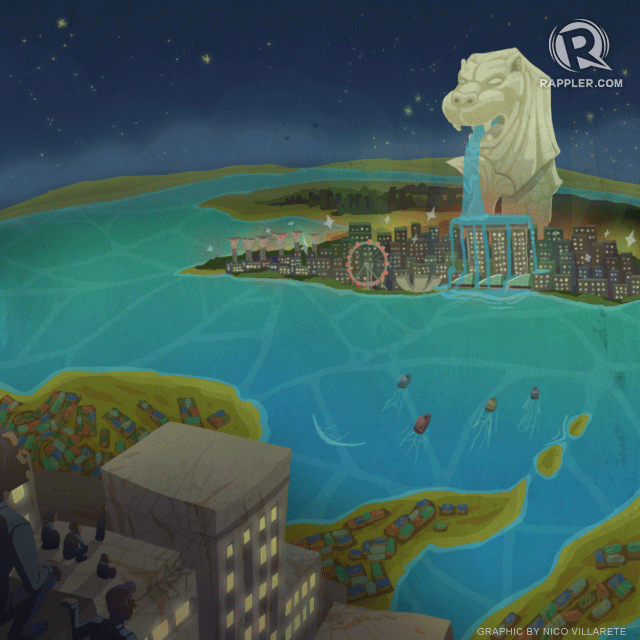SUMMARY
This is AI generated summarization, which may have errors. For context, always refer to the full article.

Singapore envy. For many Filipinos, it’s the contrast we long for, the antithesis of Metro Manila. A place where everything works.
The public transport system is efficient – although residents now complain that it has not kept up with the growing population. Changi Airport is where any traveler would welcome delays: it provides every amenity you can think of, from swimming pool to free movies to massage chairs.
Corruption is zero. You can’t find slums and hardly are there homeless people. Wages are competitive. Access to education and health care is universal.
You can breathe unpolluted air and listen to the melodious chirping of birds even while you’re on Orchard Road. Trees, gardens and parks are part of the city-state’s DNA. Hawker stalls serve clean and reasonably priced food. Streets and alleys are almost antiseptic.
This city-state is an amazing success story. It has raced past its Southeast Asian neighbors to first-world status and found its place in the international stage.
As Singapore marked its 50th anniversary as an independent country, the question many ask is: can it continue to be exceptional in the next 50 years? (READ: #SG50: A changing Singapore questions its miracle)
But the small city-state faces challenges to its social security, mainly the influx of migrant workers. And the lack of tolerance for an effective opposition persists.
The Economist is optimistic that Singapore will continue to be a dazzling success, arguing that it is “better equipped than most countries” to face such challenges to its economy, law and order, and security. But it pokes the little state, urging it to “relax” politically and socially…to be less of an exception, more of a normal country.”
For Kishore Mahubhani, a leading public intellectual in Singapore, the question is more stark: can Singapore survive? That was the title of his most recent book wherein he called for, among others, a “big tent” approach to ensure his country’s survival. This means, he said, “working with all Singaporeans, even those who had been critical of the PAP [People’s Action Party] and its leaders.”
Here’s something to mull over as Singapore starts the next 50 years of its life, an interesting tidbit about Lee Kuan Yew. He once said in an interview that his favorite book was “Don Quixote.” The New York Times reporter then asked: “But people might find that ironic because he was a fantasist who did not realistically choose his projects and you are sort of the opposite?”
Came Lee’s reply: “No, no, you must have something fanciful and a flight of fancy.”
Singapore can very well afford to have this. – Rappler.com
Add a comment
How does this make you feel?
There are no comments yet. Add your comment to start the conversation.